About Course
The primary objective of the department has been to impart quality education, training and research in various areas of Electronics and Communication Engineering with broad emphasis on design aspects of Electronics and Communication systems. The Department has always been on a high growth path. It has experienced and dedicated faculty, with a strong commitment to engineering education and who work with zeal and enthusiasm to provide a vibrant and optimum learning environment to the students in order to help them excel in today’s competitive environment.
Vision
Be an Excellent Technological Center in the field of Electronics & Telecommunication Engineering Education Continually.
Mission
- To nurture Electronics & Telecommunication Engineering undergraduates with quality education and skill development practice
- To provide cutting edge technology platforms to enhance the research and innovation culture.
- To inculcate professional attitude & ethical values to meet the contemporary needs of the society.
Course Offered
B Tech-Electronics and Tele-Communication Engineering- 60 Seats
Infrastructure
- Well Equipped Laboratories
- Smart Classrooms
- Seminar Hall
Short-Term Goals
- To foster contemporary technical and professional skills among internal stakeholders.
- To promote product based learning with multidisciplinary dimensions.
- To strengthen collaboration with industry and organizations pertaining to holistic development of internal stakeholders and enhancing employability/entrepreneurship.
- To increase number of research publications and concerned indices.
Long Term Goals
- To establish recognized centre of Excellence in field of Electronics and Telecommunication Engineering.
- To become a NBA accredited Department.
- To increase number of Ph.D. holders in the department.
- To start post graduate programme.
Laboratories
- Microwave & Digital Electronics Lab
- Electronics Devices & Circuit Laboratory
- Computer Laboratory
- Digital Electronics & Embedded System Laboratory
- Project Laboratory
- Computer Laboratory
- Electronics Communication Laboratory
HOD's Desk
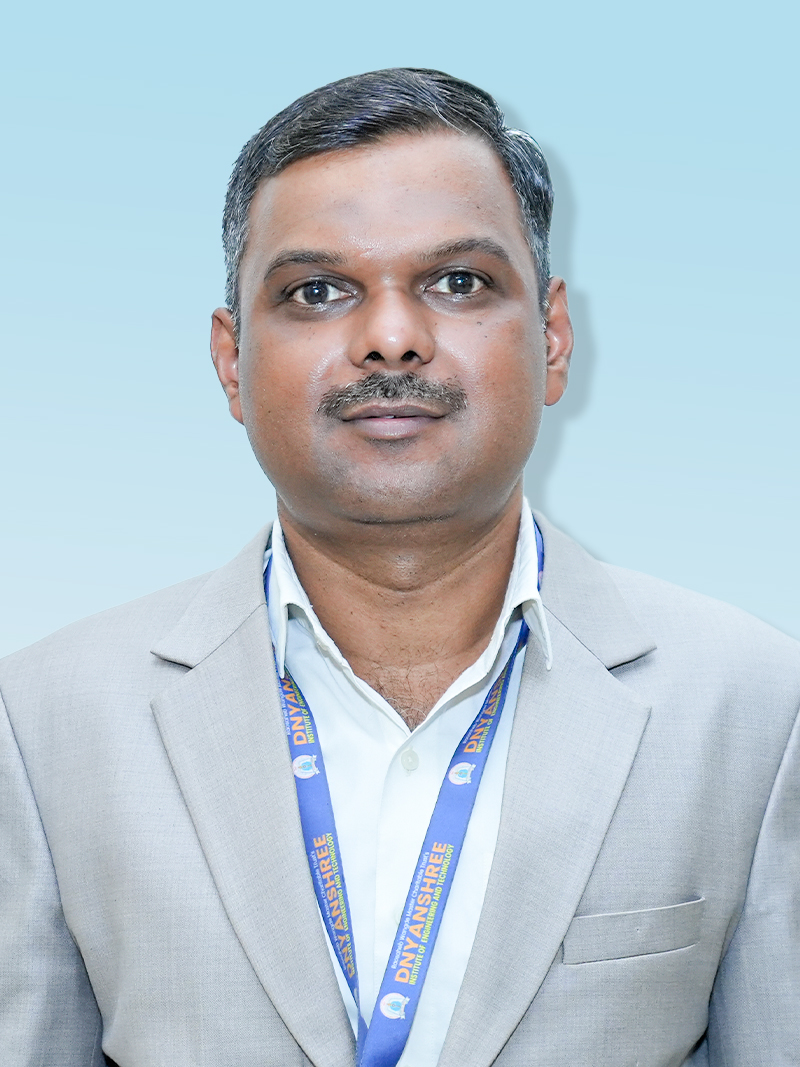
- Name: Mr. Patil Suhas Mahadev
- Education: ME Electronics
- Designation:Head of Department
- Email: hod.etc@dnyanshree.edu.in
- Resume: Click
Faculty
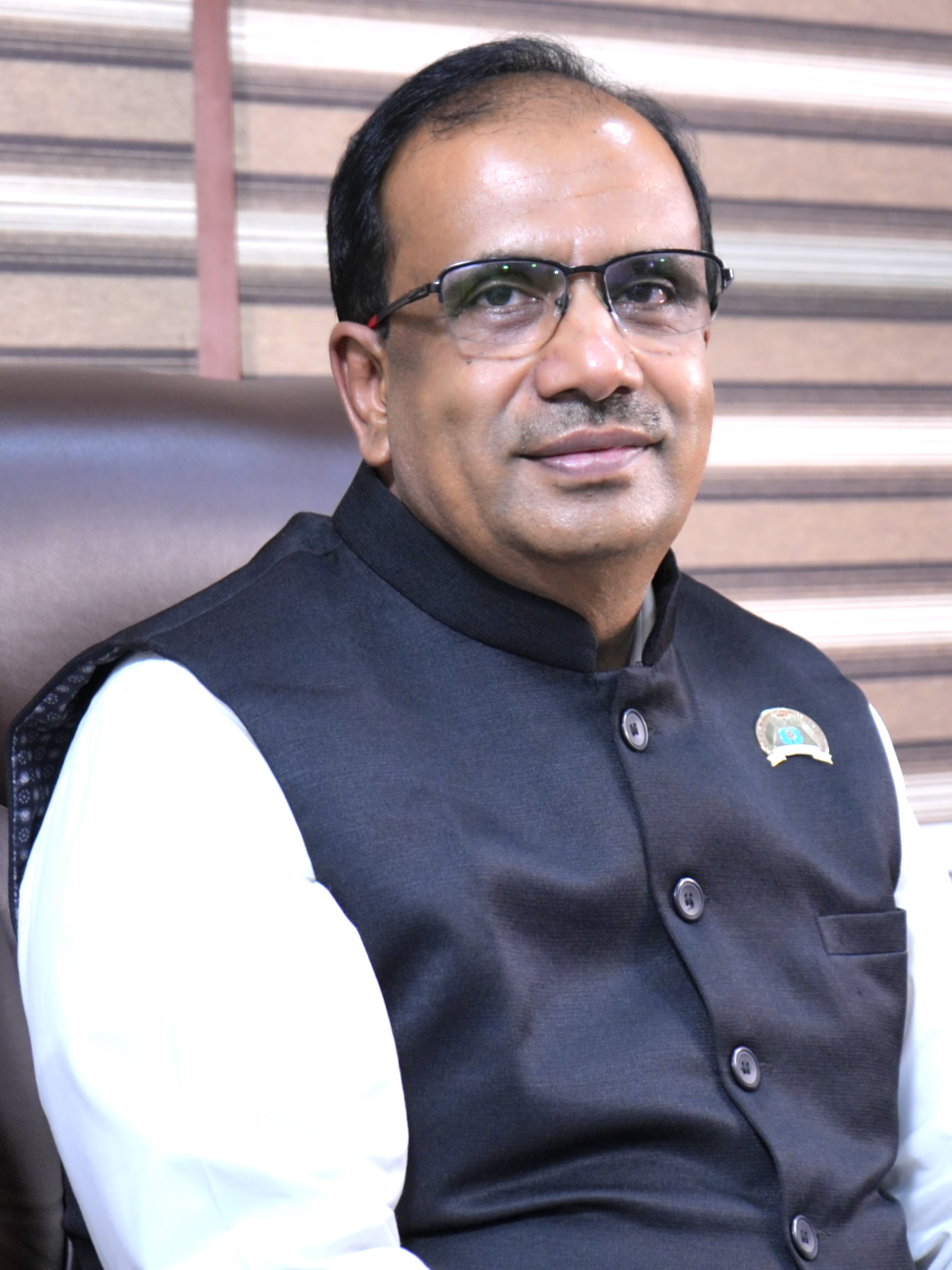
Dr. Jadhav Ajay Dadasaheb
-
Principal
B.E M.E Ph.D
Resume

Dr. More Umashankar Ramchandra
-
Vice Principal
B.E M.E Ph.D
Resume
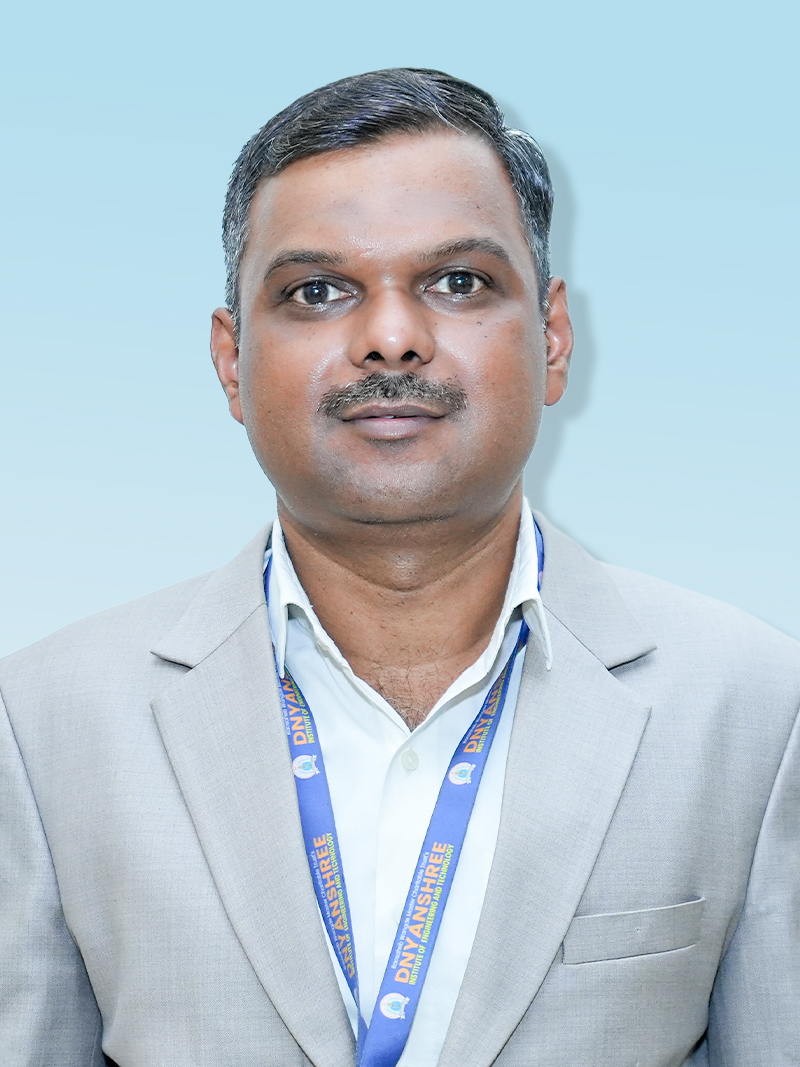
Mr. Patil Suhas Mahadeo -
Head of Department
B.E M.E, Ph.D. (Pursuing)
Resume
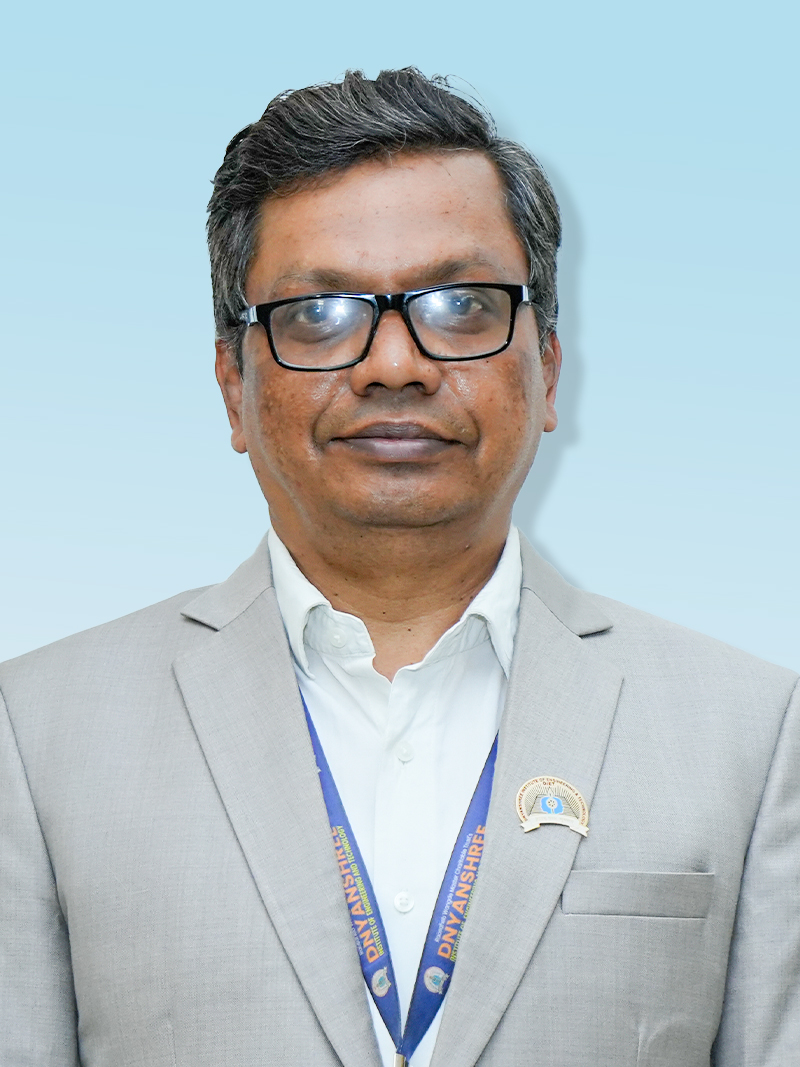
Dr. Mulla Sajeed Sirajuddin -
Associate Professor
B.E. M.E. Ph.D.
Resume

Dr. Poddar Monappa Gundappa -
Associate Professor
B.E. M.E. Ph.D.
Resume
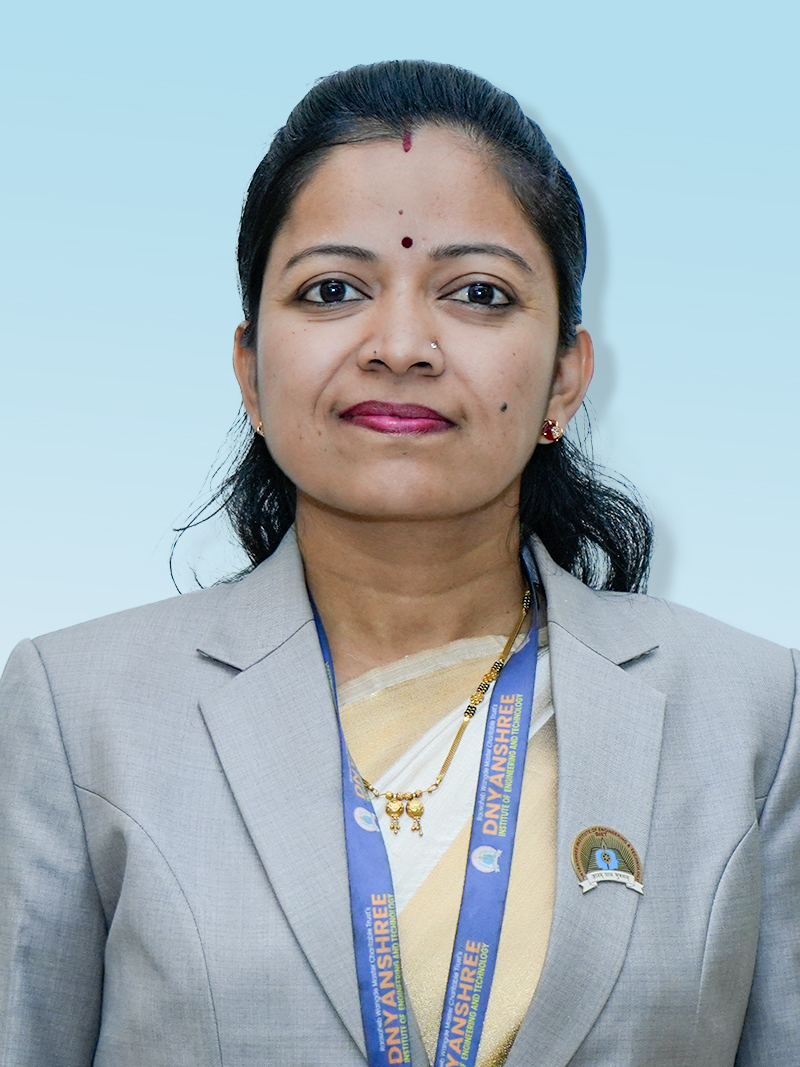
Ms. Pawar Sucheta Mohan -
Assistant Professor
B.E M.Tech, Ph.D. (Pursuing)
Resume
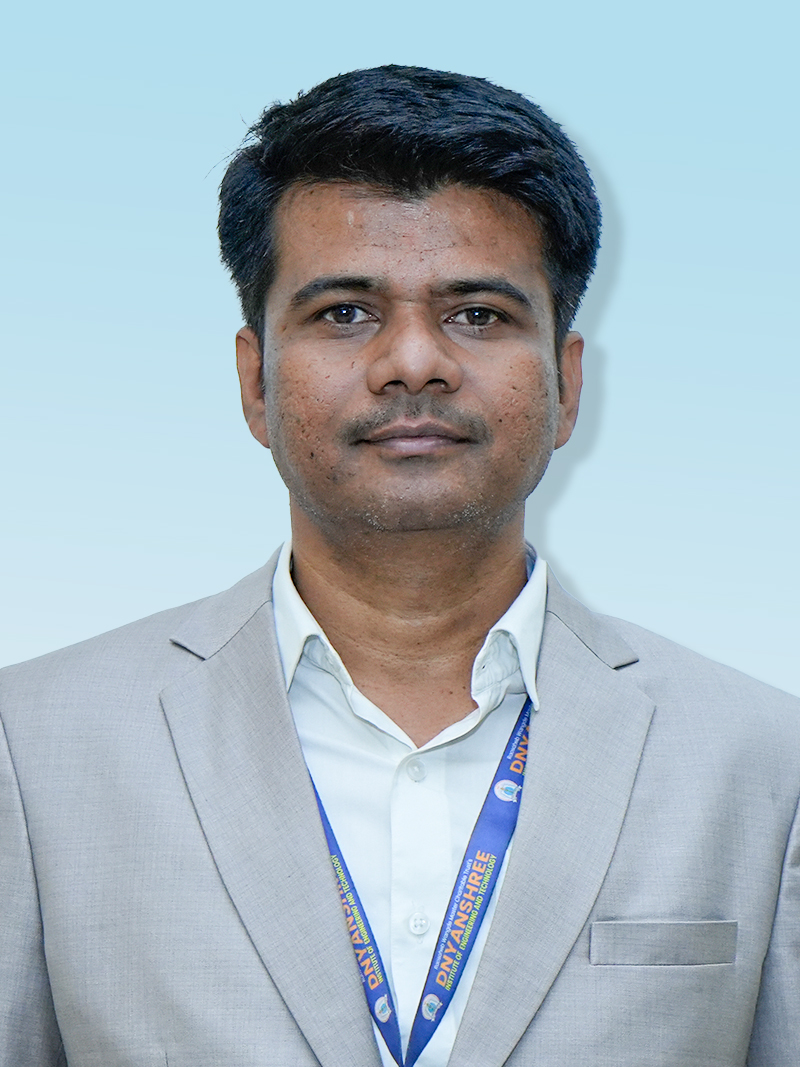
Mr. Jamdade Abhijit Suryakant
-
Assistant Professor
B.E M.E., Ph.D. (Pursuing)
Resume
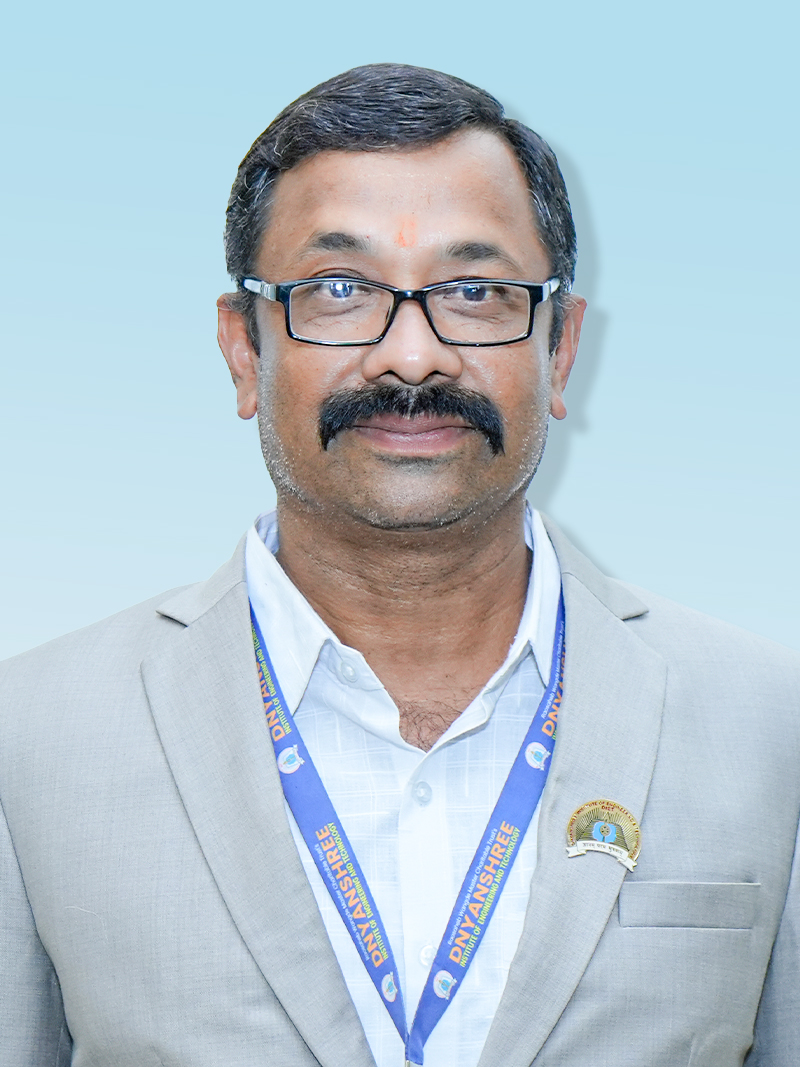
Mr. Patil Shivajirao Anandrao
-
Assistant Professor
B.E. M.E.
Resume
Supporting Staff
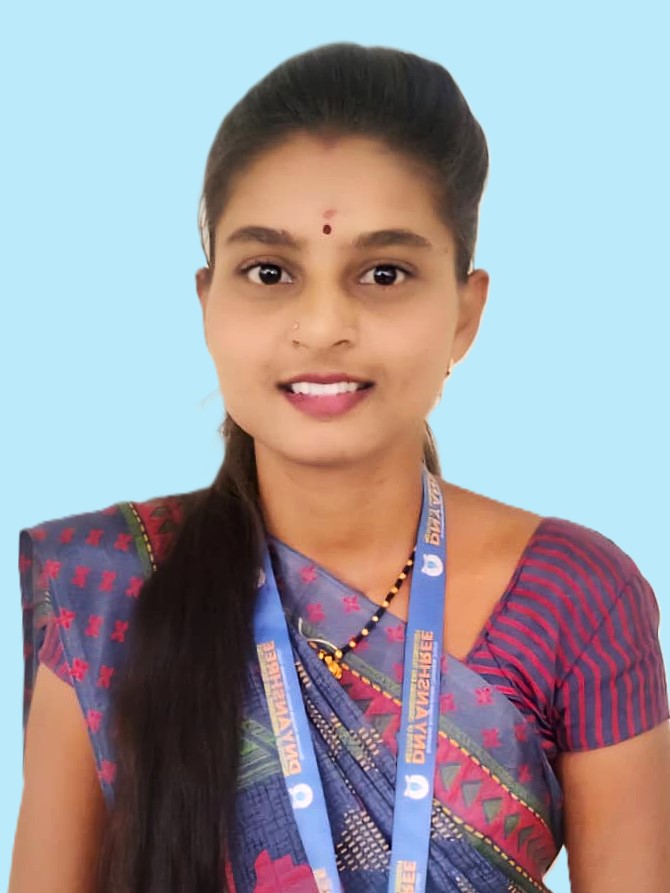
Ms. Devgude Snehal Shekhar
Junior Clerk
B. Com.
Student Association of Civil
| Sr. No. | Name of Student | Contact Number | Class | Designation |
|---|---|---|---|---|
| 1 | Devkate Rohit | 8788775737 | B.Tech | President |
| 2 | Salunkhe Kajal Sambhaji | 9075439170 | B.Tech | President |
| 3 | Sathe Adarsh | 8600293679 | TY BTech | Vice President |
| 4 | Kanse Anushree | 8668338811 | TY BTech | Vice President |
| 5 | Kadam Aarti | 9561567408 | B.Tech | Treasurer |
Achievements
| Sr. No. | Name | Achievement |
|---|---|---|
| 1 | Department | Special Mentioned Award at International Conference on VLSI and Embedded System at Bangalore(2019-20) |
| 2 | Project Group Name | First Prize @ ROTAREX 2023 |
| 3 | Project Group Name | Women Empower award @ ROTAREX 2023 |
| 4 | Project Group Name | Design & Development of 6 seater E Cart |
Laboratories
| Sr. No. | Laboratory Name | Laboratory Number |
|---|---|---|
| 1 | Communication Laboratory 1 | 523 |
| 2 | Electronics Circuits,Systems and Project Laboratory | 502 |
| 3 | Modelling and Simulation Laboratory | 501 |
| 4 | Embedded Systems and VLSI Laboratory | 521 |
| 5 | Digital Electronics Laboratory | 503 |
| 6 | Communication Laboratory 2 | 524 |
Infrastructure and facility
| Particulars | Details Lab Name & Hall Numbers |
|---|---|
| Lecture Hall | 416 |
| 316 | |
| Laboratories | Modeling & Simulation Laboratory (501) |
| Devices & Circuit Laboratory (502) | |
| Digital Electronics Laboratory (503) | |
| Embedded System & VLSI Laboratory (521) | |
| Communication Laboratory (523) | |
| Project Laboratory (524) |
Activities Conducted in the Department
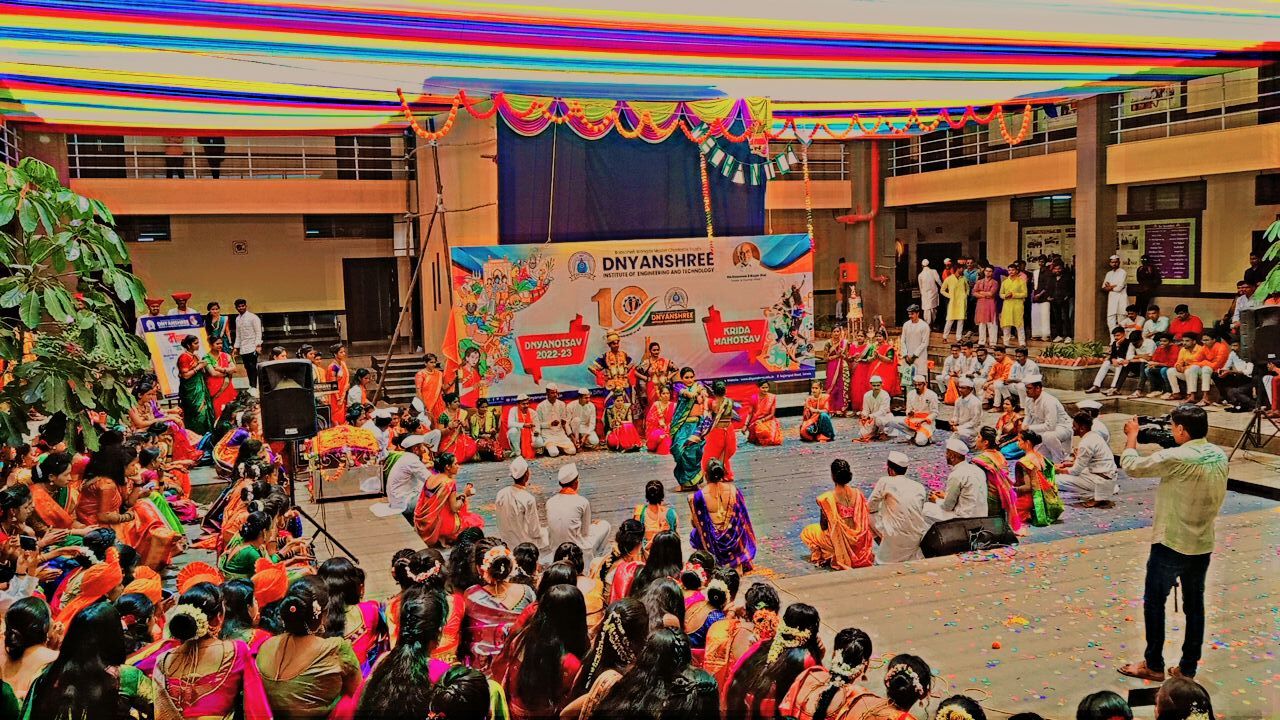
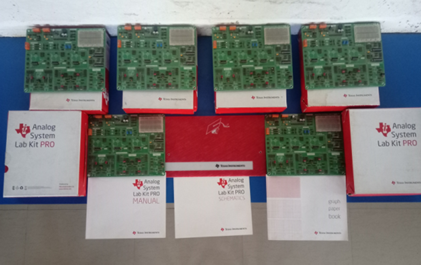
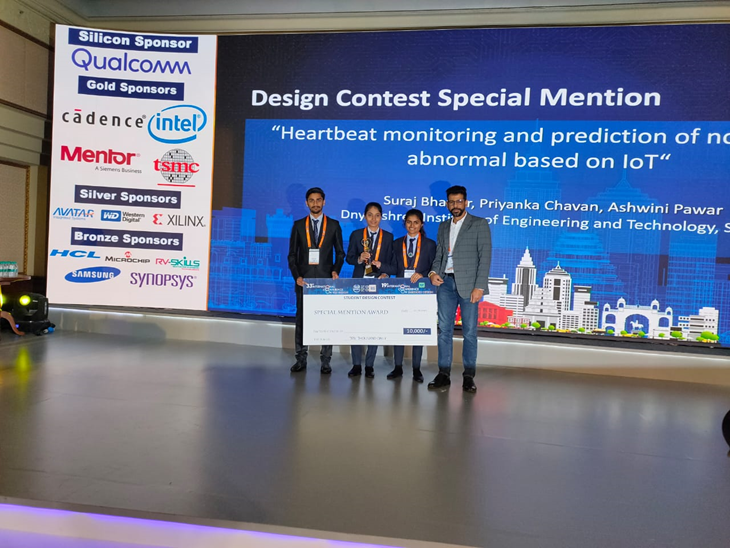
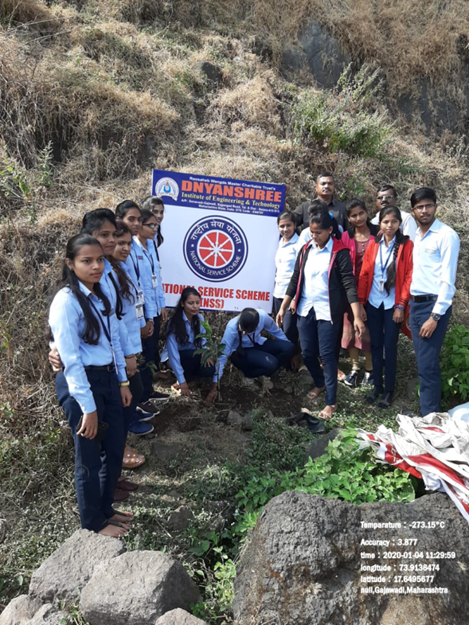
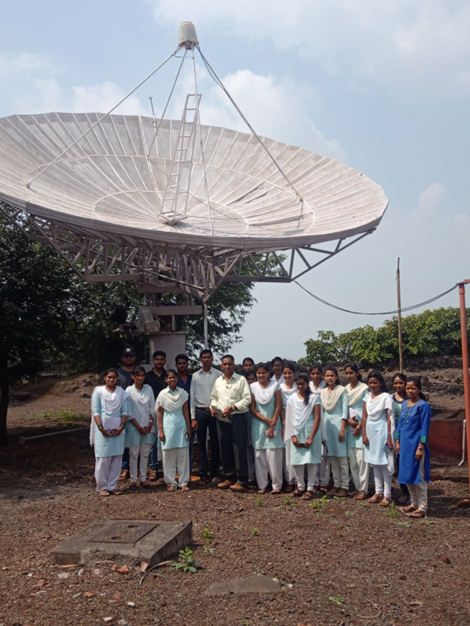
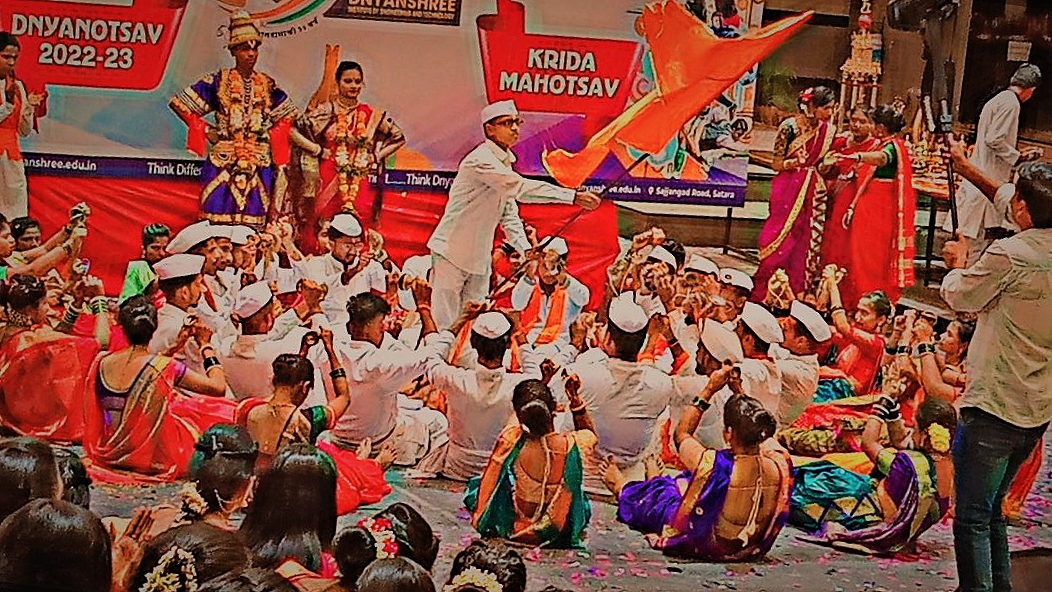
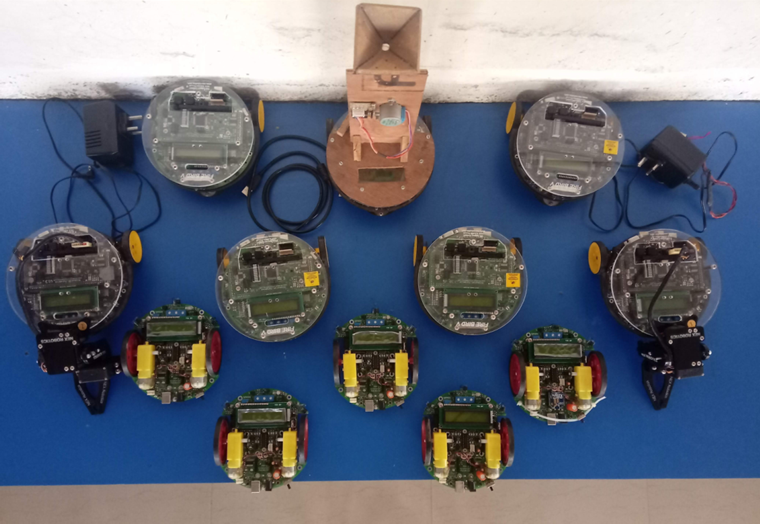
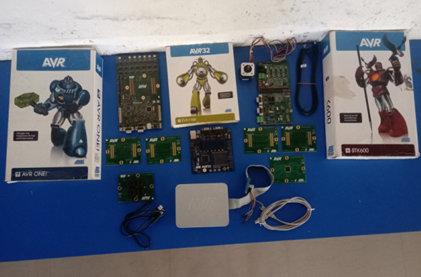
Syllabus
List of Departmental Books
| Sr. No. | particular | Total |
|---|---|---|
| 1 | Total number of Books | 175 |
| 2 | Number of Title | 168 |
| 3 | Number of Volumes | 168 |
Result Analysis
| Sr. No. | Title | Link |
|---|---|---|
| 1 | Result Analysis | Download |
Programme Education Outcome
Engineering knowledge:Apply the knowledge of mathematics, science, engineering fundamentals, and an engineering specialization to the solution of complex engineering problems.
Design/development of solutions: Design solutions for complex engineering problems and design system components or processes that meet the specified needs with appropriate consideration for the public health and safety, and the cultural, societal, and environmental considerations.
Conduct investigations of complex problems: Use research-based knowledge and research methods including design of experiments, analysis and interpretation of data, and synthesis of the information to provide valid conclusions.
Modern tool usage: Create, select, and apply appropriate techniques, resources, and modern engineering and IT tools including prediction and modeling to complex engineering activities with an understanding of the limitations.
The engineer and society: Apply reasoning informed by the contextual knowledge to assess societal, health, safety, legal and cultural issues and the consequent responsibilities relevant to the professional engineering practice.
Environment and sustainability: Understand the impact of the professional engineering solutions in societal and environmental contexts, and demonstrate the knowledge of, and need for sustainable development.
Ethics: Apply ethical principles and commit to professional ethics and responsibilities and norms of the engineering practice.
Individual and team work: Function effectively as an individual, and as a member or leader in diverse teams, and in multidisciplinary settings.
Communication: Communicate effectively on complex engineering activities with the engineering community and with society at large, such as, being able to comprehend and write effective reports and design documentation, make effective presentations, and give and receive clear instructions.
Project management and finance: Demonstrate knowledge and understanding of the engineering and management principles and apply these to one’s own work, as a member and leader in a team, to manage projects and in multidisciplinary environments.
Life-long learning: Recognize the need for, and have the preparation and ability to engage in independent and lifelong learning in the broadest context of technological change
PEO of Dept.
PEO1: To acquire technical knowledge in the field of Electronics and Telecommunication engineering.
PEO2: To develop cost effective electronic systems to provide industry/ socially acceptable solutions on real time issues..
PEO3: To develop leadership qualities upon moral values among students
Programme Specific Outcomes (PSOs)
Graduates of Computer Engineering Program will :PSO1: Interpret concept of signal processing, communication, networking, embedded systems, control system, etc.
PSO2: Provide electronic and multidisciplinary solutions in ethical manner for industrial, societal and environmental needs. ment and maintenance.
PSO3: Add the value using cutting edge technology viz SoC, NoC, ULSI etc
MOU
| Sr.no. | Industry/Institute Name | Collaboration Details | Duration |
|---|---|---|---|
| 1 | Smart Logic Technologies, Pune | Conduction of VAPs, Bridge Courses, Internship Programs, Suggestions in syllabus development, Industrial Visits, FDP, Project Sponsorship. | 10/04/2023 to 09/04/2026 |
| 1 | Aptron Technology, Satara | Conduction of VAPs, Bridge Courses, Internship Programs, Suggestions in syllabus development, Industrial Visits, FDP, Project Sponsorship. | 20/05/2023 to 19/05/2026 |
| 1 | Sai Industries, Satara | Conduction of VAPs, Bridge Courses, Internship Programs, Suggestions in syllabus development, Industrial Visits, FDP, Project Sponsorship. | 12/06/2023 to 11/06/2026 |